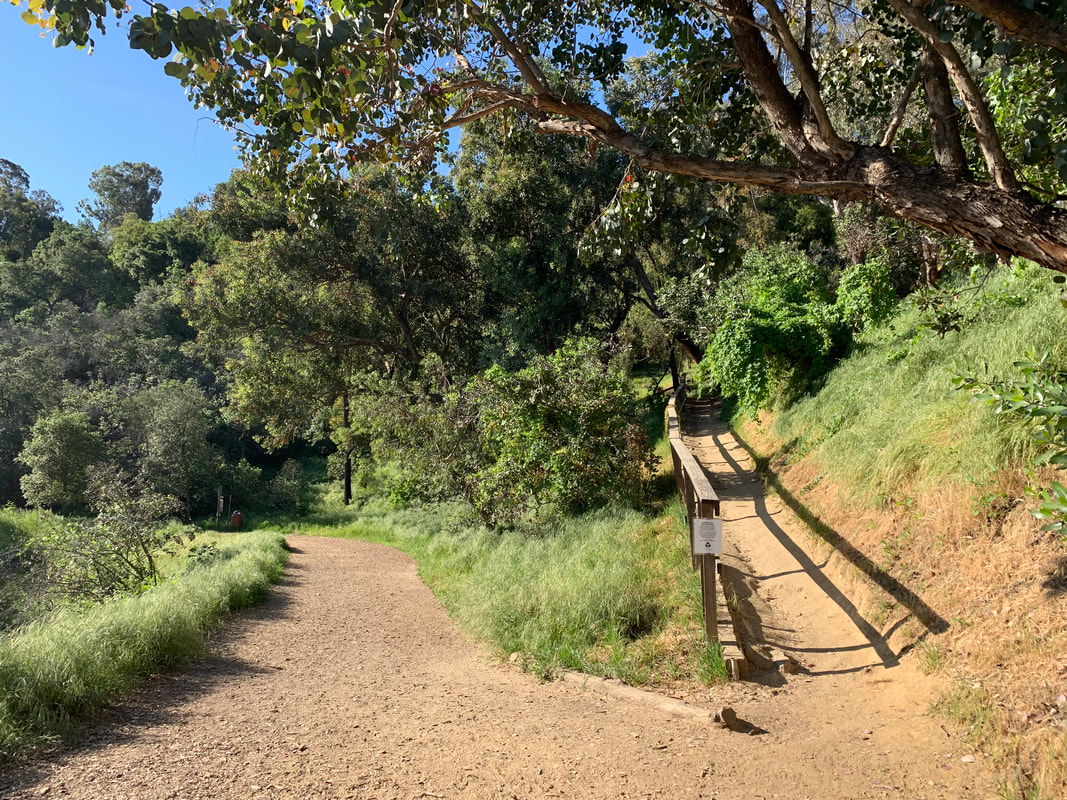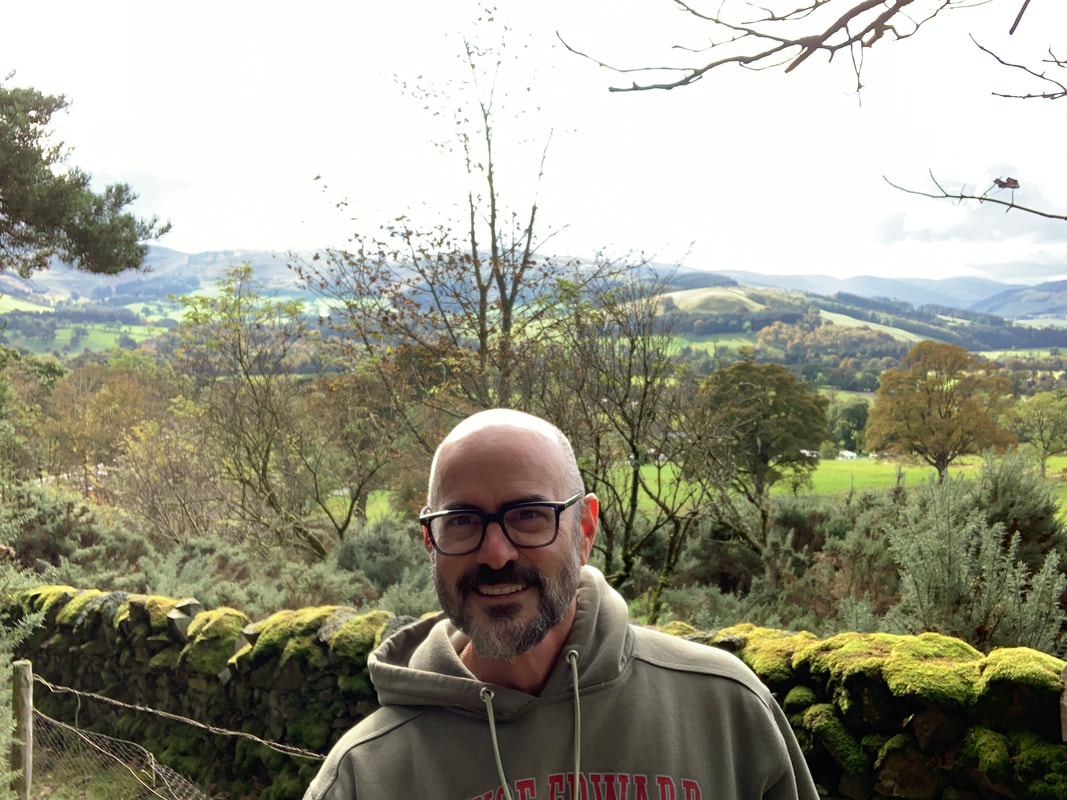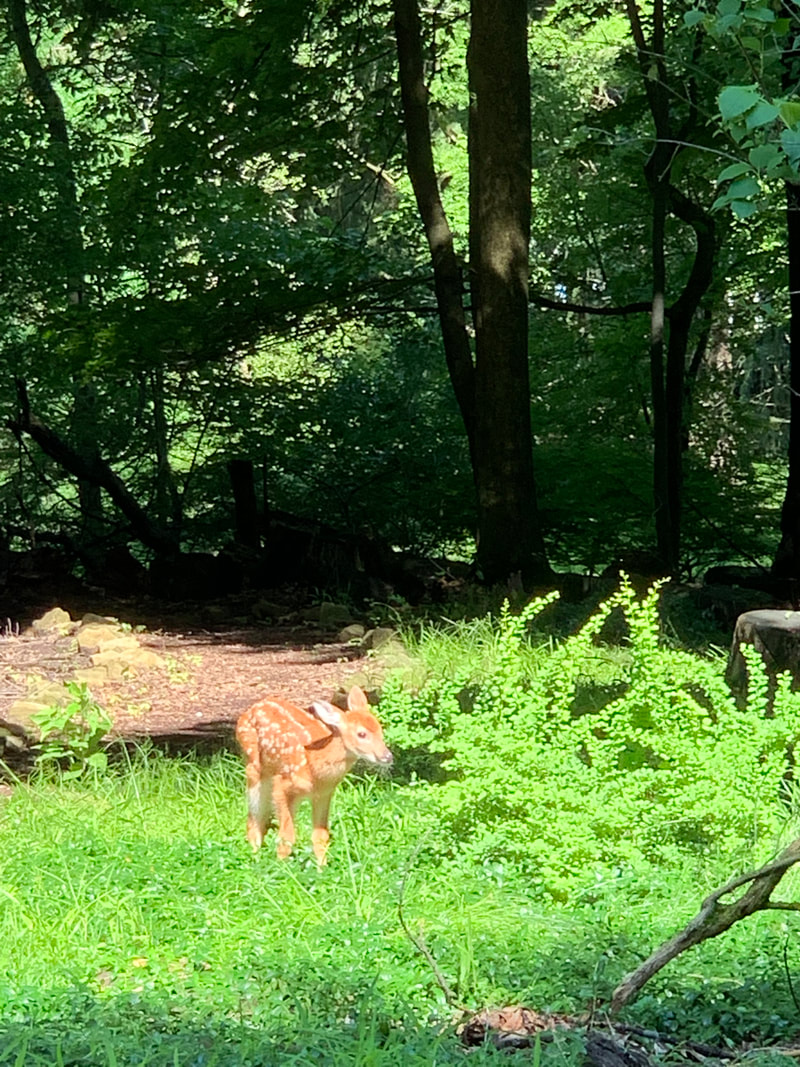Last Monday, the Church celebrated the feast of St. Francis of Assisi. There is so much to say about this great person, who gave up his status and wealth to care for the poor. But today I want to focus on how, like this psalm, Francis helps us see God in a whole new way. Which for me, came from his understanding of nature.
As the patron saint of ecology, animals, and peacemaking, Francis believed God was in the center of every living thing, and that every living thing has a unique way of speaking about God. Every bug, tree, bird, fish, and plant is a testimony to God’s providence and power. Perhaps inspired by Francis, Meister Eckhart said, “A person who knew nothing but creatures would never need to attend any sermons, for every creature is full of God. A book of their own.” I take this to mean that every living thing is gospel; a proclamation of God’s great glory. This might explain why Jesus used nature as the centerpiece in most of his parables. Or why the psalmist used the earth’s elements as visages of God’s greatness. God’s clothes are made of majestic light. God’s bed chamber is water. God’s ride is a chariot made of clouds and wind. It sounds like God lives in the 1970’s! Earth, wind and fire - everything in our world becomes a place where God sets up residence to be with us. The poet, like Jesus and Francis, speaks of God in the present tense - imagining God here among us. Like right here, right now. This should serve as a warning to anyone who proclaims God’s truth but denies the claims climate scientist. Viewing the world as artistically as the writer of Psalm 104 does, anyone who loves God should want to nurture, protect, and love the earth as much as God does. Not only do we need it to sustain our life, and the life of future generations, but like Francis seem to express: Nature is God’s greatest missionary.
watch the message here. seriously, it's not that bad.
The rain and wind and even mosquitos remind us of God’s goodness. Jesus tells us that it’s in the lilies of the field and the birds of the air we discover God’s faithfulness and provision (Mt. 6:28-30). He taught us that with every gust of wind we are reminded to live our lives trusting God’s Spirit (John 3:8). Even the Apostle Paul wrote that nature testifies to God’s existence, thus we have no excuse not to know God (Rom. 1:20).
As I learned from St. Francis, God is here. And there. And everywhere. Every living thing is a divine revelation that reveals God’s beauty, glory, power, wisdom, presence, and, most of all, God’s loving care for us. Maybe that’s why I’m drawn to spend time in nature. I want to always be surrounded by God’s wondrous love. A few years ago, I was on a silent retreat in Cleveland. Sitting in this little hidden nook tucked away in the forest, I sat still with my eyes closed listening to the leaves and birds singing. Before I realized, an hour had passed. When I opened my eyes, I saw three baby deer standing within arm’s reach of me. This divine trinity reminded me just how close God really is to us.
Like Kathleen Bostrom wrote, Everything is good because God created it this way. This is good. That is good. You are good. I am good.
Rats, moths, elephants and donkeys are all made good because of God’s great love. Once Francis realized this, he began to revere every living thing; often referring to the sun and moon and trees as “brother” and “sister.” Like Henri Nouwen put it, “Everything in creation belongs to the large family of God.” When we pause to recognize this interconnectedness between nature and humans, it’s hard not to stand in reverence with our souls lifted “in wonder and awe.” In 2011, I took a life-changing trip to Tanzania. I spent ten days in the Serengeti, completely blown away discovering how animals are really no different than us. They played, napped, conversed, looked for food. I even saw an elephant discipline his child for pestering her little brother. The world is full of God’s imagination and creativity. And we are a part of it. This really became clear to me there at night under a canopy of stars. With no artificial light to block the view, I was blown away by their brilliance. The sheer number rendered me speechless. One night, and I’ll never forget this, I imaged myself not standing on earth but instead diving into heaven, into a pool of shimmering and shining lights that were calling out to me. Jumping in I became one with that celestial body, where I swear I heard God whisper in the wind, “This is good.” I think this is what God wanted me to witness. Had my eyes not been open by the faith of St. Francis, I might have overlooked that Divine presence right there with me. I might not have learned what my worth is to God who made us out of stardust and declared us good. That is why it is so important for us all to take the time to be in nature; to be present in creation and show gratitude to our Creator. Whether it’s in a forest, or at the park, in the ocean, nature gives us endless opportunities to let your heart sing, “Bless the Lord, O my soul.” To live life without taking notice of the world around you is to miss out on one of the most tangible and beautiful ways God speaks to us. This is important to remember as we enter Anamesa, that sacred space in between heaven and earth. As we move, we must do so with intention, with our eyes on God whose is revealed in the faces of not just puppies or trees but in the hungry, the tired, the sick, and the dying as well, our brothers and sisters. As we close that gap between us and them, may we do so willingly and tirelessly - like Jesus and Francis did – sharing the good news of God by being a place for God to be present for others. This is how we humans testify to God’s glory: by proclaiming it in all the ways we love one another, as God loves us. Like I learned from St. Francis, wherever there is life, there also is God. And like I learned from Jesus, wherever God is, there is love. This doesn’t mean there aren’t things in this world that won’t try to trip you or trap you. Although Jesus often retreated to the mountains and wilderness to be with God, it was also out there he was tempted to take his eyes off God and place his heart on the world. Our world, with all its bright lights and glitter likes to promise us power and prestige if only we bow down and worship it. Some people are confused, placing their faith and even their worship on the things of the earth. Neither Jesus nor Francis worshipped creation. But both kept their devotion and loyalty to its Creator. God reveals God’s self to us in the most amazing ways, not so we can make an idol or religion out of it but so we will always see God and set our hearts right within it. It is my hope that you leave here today with your eyes and heart forever focused on the One who made them. The one whose providence and promises have been set since the beginning of all creation. By looking at the world around us, by being present and alert, may we always receive God’s love and reflect it back into the world. Be it here and there and everywhere. By our faith, we a part of Christ’s body. And by grace we are a part of God’s holy family. We are, and always have been, God’s beloved. Beautifully and perfectly made in the divine image of the One who whispers to us in the wind, “this is good.” Work Cited Bostrom, Kathleen. Bartlett, David L. and Barbara Brown Taylor, eds. Feasting on the Word, Year B Vol. 3. (Louisville: Westminster John Knox, 2009). Nouwen, Henri. Bread For The Journey. (Convergent, 1997). Rohr, Richard; notes on St. Francis from his daily devotional Every Creature Is An Epiphany (accessed 10.02.21).
0 Comments
Leave a Reply. |
Ian MacdonaldAn ex-copywriter turned punk rock pastor and peacemaker who dedicates his life to making the world a better place for all humanity. "that they all might be one" ~John 17:21“Prius vita quam doctrina.”
~ St. Thomas Aquinas (1225–1274) * “Life is more important than doctrine.”
Archives
June 2024
|


